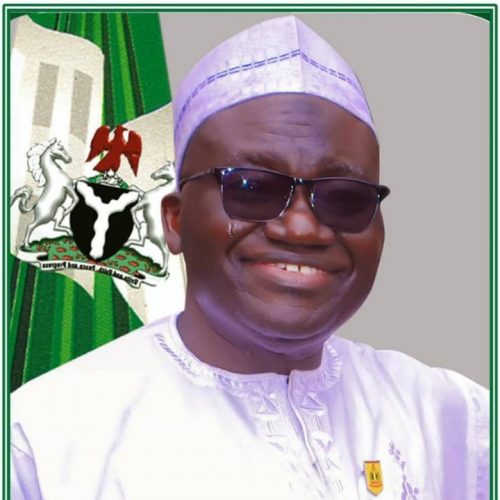
Metropolitan Club at Victoria Island on Thursday 17th March, hosted the family members, contemporaries, friends and well wishers at a unique historic posthumous 10th year memorial of the late Major General Henry Edmund Olufemi Adefope. He was a “double Minister” of the Federal Republic, ( Minister of Labour ( 1975 to 1978) and Minister of Foreign Affairs (1978 to 1979) under Murtala/ Obasanjo military regime ( 1975-1979). Pa Henry Adefope died on the 11 March 2012 at the age of 85, four days to his 86th birthday.
With delight, yours comradely was a witness to nostalgic reflections. MINILS is mandated to build capacity for organized and unorganized workforce, trade unions and serve as a research centre on labour market issues that include conflict apprehension and resolutions, collective bargaining, occupational health and safety, productivity, labour motivation and national development.
A Memorial for the most impactful labour minister was therefore a total, not partial commitment. It was commendable that Adefope family initiated a remarkable chronicle of the legacy of the late major general through a presentation of a well written biography by both professors Jide Osuntokun and David Aworawo. Of special interest to me is Chapter 8 dealing with Labour Administration of the book entitled; Major- General Henry Edmund Olufemi Adefope ( 15/3/1926- 11/3/ 2012): Legacy of Honour. The late General was the 8th Minister of Labour (then known as Federal Commissioner for Labour 1975-1978) of the oldest ministry established in 1939.
Adefope shared good company of public service with Chief S. L. Akintola, the pioneer Federal Minister of Labour 1952. His immediate predecessor Minister was Chief Anthony Enahoro, Federal Minister of Information, Labour & Cultural Affairs (1967-1975). President Muhammadu Buhari is the first head of state to commendably and deservedly upgrade and uplift the oldest Ministry with two Ministers given the vastness of labour market issues. What is good for Ministry of Finance ( two ministers) is good for Ministry of Labour. What then makes Adefope’s legacy of honor with respect to labour administration?
There are scores of historic landmark labour developments that shaped the growth and development of labour movement since the emergence of trade union activities in Nigeria in late 19th century (1890s). Five events are worth mentioning. First was the emergence of the first generation trade unions, namely Nigeria Civil Service Union( NCSU) in 1912, National Union of Teachers (NUT) 1931, and National Union of Railway men ( NUR) 1932.
Salutations to the first generation of audacious trade unionists that included late Dr Pa Imoudu, Alhaji H. P. Adebola, Wahab GoodLuck, T A Bankole M.A Tokunbo, Gogo Chu Nzeribe S.U. Bassey, J.O. James, N.F. Pepple, A.I. Okwese, E.A.O Odeyemi, J.U. Akpan, R.A. Ramos, Okon Esshiett and Vincent Igwe Jack among others. The second significant event was the enactment of Trade Union Ordinance / Act of 1938 by British colonial administration. The third event was the wave of collective group actions of trade unions against harsh economic conditions under imperialism and colonialism especially after WW11. The most cited was the 45 day- long strike of 1945 over the cost of living allowances ( COLA) the singular strike that produced the first number one Labour Leader of Nigeria, Dr Micheal Imoudu (1902 – 2005). He courageously led that struggle, setting the standard for labour resistance in decades to come.
Four years after, (precisely 18th November 1949), the Iva Valley miners at Enugu colliery went on strike against deplorable precarious colonial industrial relations characterized by lock out, summary sack, wage cut and racist abuse. 21 striking miners and a bystander were massacred at the British government-owned coal mine. 51 workers were injured. So much for British Lugardian colonial “ human/trade union rights” record ! Almost the same period, the fourth development: formation of the first central labour organization the Trade Union Congress of Nigeria ( TUCN) in 1942, followed by the first NLC in 1950 and second NLC in 1975. All efforts at one labour centre initiated by the trade unionists proved intractable, no thanks to legitimate idealogical divisions of the Cold War era.
The fifth remarkable land mark event was the struggle for National minimum wage and eventual enactment of the first minimum wage Act in 1981 ably led by the inaugural President of the past 1978 NLC, Alhaji Hassan Sunmonu. As significant as those five historic events were, the most profound was the government intervention in the trade movement under the leadership of Minister ( Federal commissioner) Henry Adefope.
The labour reform of 1975- 1978 remains subject of inquiry for scholars of industrial relations in Nigeria given the controversies that trailed the reform, its positive impact on the growth and development (indeed transformation!) of the trade union movement ( Hashim . Y.; 1987: 1989, Andre & Beckman : 1984, Aremu. I 1991). That reform was the signature legacy of Adefope made possible by conditional, strategic but constructive support of the trade unionists after initial resistance against military big ban of radical trade unionists that included Micheal Imoudu.
Key highlights of the reform articulated in the controversial labour policy of “ limited intervention” and “guided democracy” included : constructive facilitation of emergence of one central labour organization ( NLC) in 1978. In 1975, inspired by famous Apena Cemetery (unity) Declaration, trade unionists of varying ideological divide gathered to form the second NLC, through the merger of hitherto four centers: Nigeria Trade Union Congress (NTUC), United Labour Congress of Nigeria ( ULCN), Labour Unity Front ( LUF) and National Workers’ Council-(NWC). The effort was marred in controversies and protests. This buoyed up Murtala/ Obasanjo military regime that upturned Gowon regime with the promise of widespread national socio- economic reform, to press for wholesome unprecedented reforms of trade unions that included judicial inquiry into the finances of the unions.
The result: a new (3rd) central labour centre ( NLC) inaugurated in February 1978 in Ibadan. More than 1000 house unions were organized into 42 strong national industrial unions, 15 senior staff associations, 8 Employers Associations and 4 professional unions. In addition, Cheque off union due was made automatic. NLC was granted N1 million ( $2 million) then as a take off fund shared among the 42 unions equally and the NLC itself. This assured financial and organizational independence of Nigeria’s trade unions making them non- subservient to international labour centers of both the West and East of the Cold War era. Indeed Alhaji Hassan Sunmonu, NLC’s pioneer President became the longest elected Secretary General of Organization of African Trade Union Unity (OATUU), the only permissible affiliation by a Pan- African patriotic regime of Murtala/ Obasanjo. Subsequent unions’ restructuring in 1986, 1995 and 1996 took queue from the 1978 reform. NLC was named in the law, making its existence inviolable. Notwithstanding subsequent dissolutions of its Executive councils by the military regimes of Ibrahim Babangida in 1988 and Sanni Abacha in 1994 NLC through its strong affiliate industrial unions, has passed the test of times which under scored the sustainability of Adefope- driven reform.
Unarguably, the NLC remains the biggest labour centre in Nigeria (and indeed in Africa) with over seven million organized and potential 40 million members! NLC fought and won five National minimum wages since 1978 offering wage floor for millions of workers. Strong institution with strong comrade presidents: Hassan Sunmonu (1979-1984), Ali Chiroma (1984-1988), Paschal Bafyau (1988-1994), Adams Oshiomhole (1999-2007), Omar Abdul Waheed (2007- 2015) and Ayuba Wabba (2015 to date). Not yet a Comrade female comrade President! The current serving Ministers of Labour and Employment are Sen. (Dr.) Chris Nwabueze Ngige, OON ( 11th Nov. 2015 till date) and Mr Festus Keyamo SAN, Hon. Minister for State Labour and Employment (23rd September 2019 till date) have (within the context of National Labour Advisory Council (NLAC) commendably initiated a new comprehensive labour law reforms. What is remarkable is that the new review takes 1978 reform as the point of reference to be improved upon. This points to the enduring legacy of Adefope, trade unionists, labour Ministry officials and employers of labour that through social dialogue, contestation and cooperation made this possible.
Issa Aremu mni
Director General
Micheal Imoudu National Institute for Labour Studies ( MINILS ) Ilorin.



